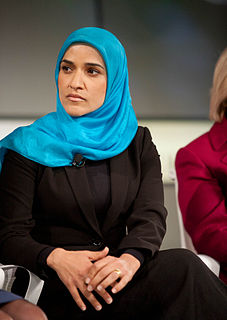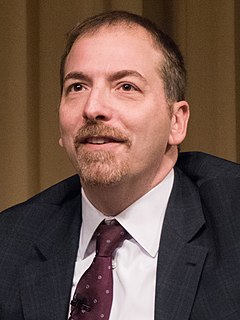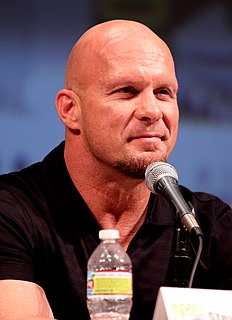A Quote by Tariq Ramadan
Salafi is a very broad concept in Islam. What we have now is, like, for example, the Nour Party in Egypt or the Salafi in Tunisia are people who, in fact, we call very often Wahhabi, following the Saudi school of thought and law. And they are literalists in the way where it's black and white, there's a very narrow interpretation of the scriptural sources. For decades, we knew that they were there, but they were not involved in politics. What is completely new for all of us over the last years is that they are now within the political arena and playing the democratic game.
Quote Topics
Arena
Black
Black And White
Broad
Call
Concept
Decades
Democratic
Egypt
Example
Fact
Following
For Example
Game
In Fact
Interpretation
Involved
Islam
Knew
Last
Last Year
Law
Like
Narrow
New
Now
Often
Over
Party
People
Playing
Political
Politics
Saudi
School
Sources
Thought
Tunisia
Us
Very
Way
Were
White
Within
Years
Related Quotes
Islamism implies some sort of political and social plan for Muslim people. In that classification, we find different categories. Legalist ones, traditional ones and revolutionary ones. Some of them are revolutionary but are non-violent, others are extremely violent. There are also the ones we call the literalists, like the Egyptian party Hizb al-Nour that used to be against democracy and now is getting into the political game.
The question about the Salafi is an important question as I say in Arab Awakening, and have often repeated since. I am really underlining the importance of this, because we really don't have very good memories. Remember - the Taliban in Afghanistan were not at all politicised in the beginning. They were just on about education. And then they were pushed by the Saudi and the Americans to be against the Russian colonisation, and as a result they came to be politicised.
This is a book called Women in the Shade of Islam. It's published by the government of Saudi Arabia. I picked it up in Pakistan, where the Taliban Ladies Auxiliary, and our young wife in California would've picked up an item like this. And it puts out that Salafi-Wahhabi ideology that is ultimately the toxic poison that is crossing all these borders.
Things need to be properly named. Political confusion starts with terminology confusion. Islamism implies some sort of political and social plan for Muslim people. In that classification, we find different categories. Legalist ones, traditional ones and revolutionary ones. Some of them are revolutionary but are non-violent, others are extremely violent. There are also the ones we call the literalists, like the Egyptian party Hizb al-Nour that used to be against democracy and now is getting into the political game.
The fact that this organisation is called the Islamic State reveals something even deeper. In fact, it implies that every single Islamist party in Egypt, Iraq or Tunisia are not really representing Islam and Muslim people. Nowadays, political Islam is going through a crisis, however this crisis is necessary, for it will lead to a changing way of thinking. In order to make it out of this dead-end, reviewing political Islam becomes mandatory.
Even after the whole democratization process, it's quite clear that the United States are not seen in a positive way in all the Muslim-majority countries - in Egypt, in Libya, even in Tunisia - even though we have now a kind of trying to be recognized as democrats by the Islamists who are running, you know, Tunisia and Egypt. But the popular sentiment is very, very negative.
Everywhere the Salafi are pushing by saying, "We are the guardian, and we are resisting any kind of relationship to the West or provocation coming from the West." And internally, it's unsettling the whole situation. Now in Tunisian, in Libya, in Syria, in Egypt, the clash between the literalists and - the Islamists or the reformists is something which is going to be part of what we have to deal with as to the future of America.
The Democratic party should say, "Thank you very much, but you know what, we're going back to be a big-tent party. Broad on social issues like this, we are declaring, go with your heart if you truly feel that you can be, that you are pro-life, and you wanna be pro-life, and a Democrat, go for it." The Democratic party has I think been hurt very badly in terms of its national reputation with this narrow, sort of, you can't be in our party if you don't hold the right views on abortion. It would be a brilliant political move if they opened up.
One of the things that is nice about these old pastors - they were young at the time - who went into the Middle West is that they were real humanists. They were often linguists, for example, and the schools that they established were then, as they are now, real liberal arts colleges where people studied the humanities in a very broad sense. I think that should be reflected in his mind; appropriately, it is.
The problem is sitting in the birthplace of Islam, in Mecca, Saudi Arabia, where this interpretation of Islam has gone out into the world over the last four decades, creating militancy groups from Indonesia, to now, San Bernardino, California, vicious attack. We have to take back the faith. And we have to take it back with the principles of peace, social justice, and human rights, women's rights, and secularize governance.
I studied philosophy in school, became disgruntled by the fact that it was a way to have a very interesting conversation with very few people about very few things in very narrow terms and yet still believed (and still believe today) that there was something that I was getting myself involved in when I said I wanted to study philosophy.
Moses led his people through the wilderness and he wasn't permitted to enter the Promised Land. Jesus was crucified. Mohammad founded a state which soon became an empire, so that Islam from the very beginning is involved with government, with politics. And therefore there is a very clear strong political tradition in Islam.
I realized that most white Americans knew very little about our history and our struggle, and were having difficulty understanding the basis for our agitation and our resistance and our complaints. I also discovered that while black Americans had a sense of the beauty and tragedy of the journey from the time of slavery until now, we were not rooted in the specifics. I thought one way to familiarize people with that history would be through the voices of the great folk artists.































